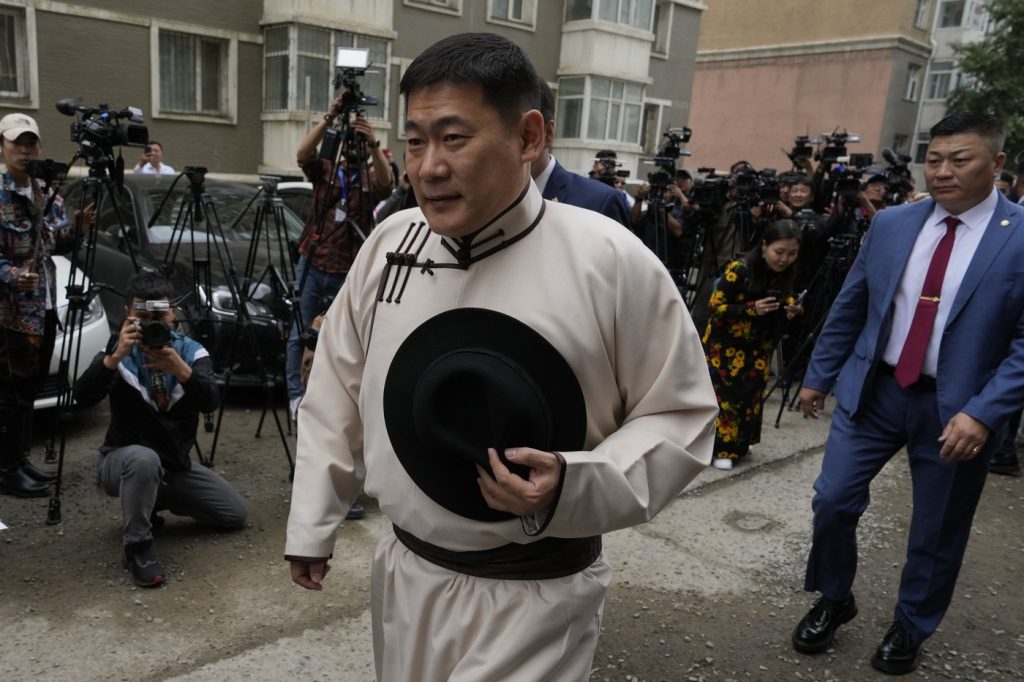ULAANBAATAR, Mongolia (AP) – Mongolia's coalition government, formed just ten months ago, is facing significant turmoil as protests demanding the resignation of Prime Minister Oyun-Erdene Luvsannamsrai have reached their ninth consecutive day. The ongoing unrest has highlighted deep-seated grievances related to governmental corruption and social inequality in the country.
On Thursday, leaders of the three parties within the coalition government convened to reassess their coalition agreement. This meeting followed the Mongolian People's Party, the largest faction in the coalition, deciding to expel the Democratic Party, the second largest party, from the coalition. The People's Party accused the Democratic Party of violating their agreement, particularly after several younger lawmakers from the Democratic Party expressed support for protests calling for the prime minister's resignation.
Democratic Party leader Gantumur Luvsannyam, who also holds the position of deputy prime minister, clarified that the views expressed by these young legislators do not represent the official stance of the party. "I never signed anything saying I would gag my members. I know my party's temperament," Luvsannyam asserted, indicating a divide within the party regarding the situation.
As the drama unfolds, the future of Prime Minister Oyun-Erdene remains uncertain ahead of a parliament session scheduled for Friday. Oyun-Erdene has held the prime ministerial position for four years and has previously withstood calls for his resignation, suggesting a potential resilience in his leadership amidst the current crisis.
The wave of protests igniting the ongoing situation began following allegations of extravagant spending by Oyun-Erdene's son. Many of the mostly young demonstrators have emphasized that these incidents underline their long-standing frustrations with corruption involving political figures and their families.
Mongolia, a resource-rich country located between China and Russia, grapples with issues of economic disparity. Although it possesses significant mineral wealth, many citizens continue to experience poverty, which exacerbates public discontent. The protesters argue that the nation’s mineral resources have primarily benefited business interests and the wealthy elite, leaving the average Mongolian citizen struggling.
The coalition government was established after a setback in the electoral gains of the People's Party in June 2024, which diminished its majority to 68 seats within Mongolia's 126-member parliament. The Democratic Party commands 42 seats, and the coalition also includes the HUN party, which holds eight seats. The fragility of this coalition, particularly in light of current public sentiments, raises questions about the stability of Mongolia's political framework as the country navigates these tumultuous waters.
The situation continues to develop as the governing parties deliberate their next steps and as the public demand for accountability grows louder. How the coalition government and Prime Minister Oyun-Erdene respond to these challenges could significantly impact Mongolia's political landscape in the months ahead.











